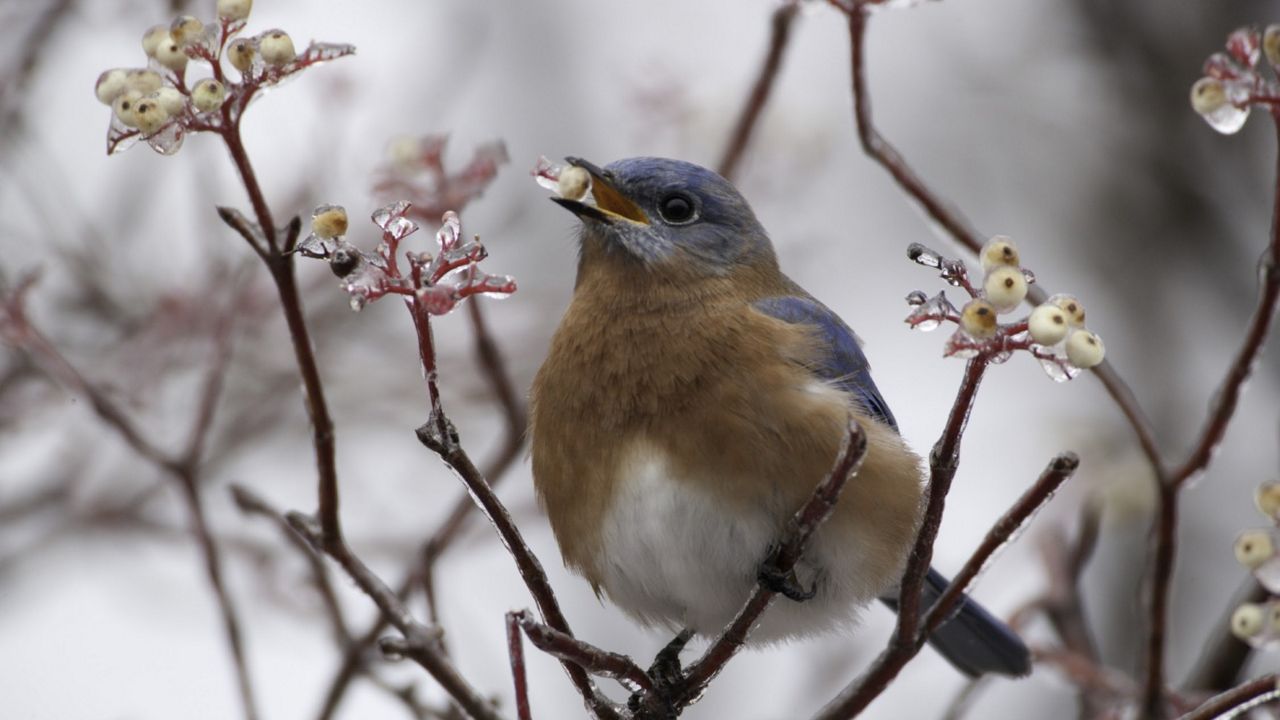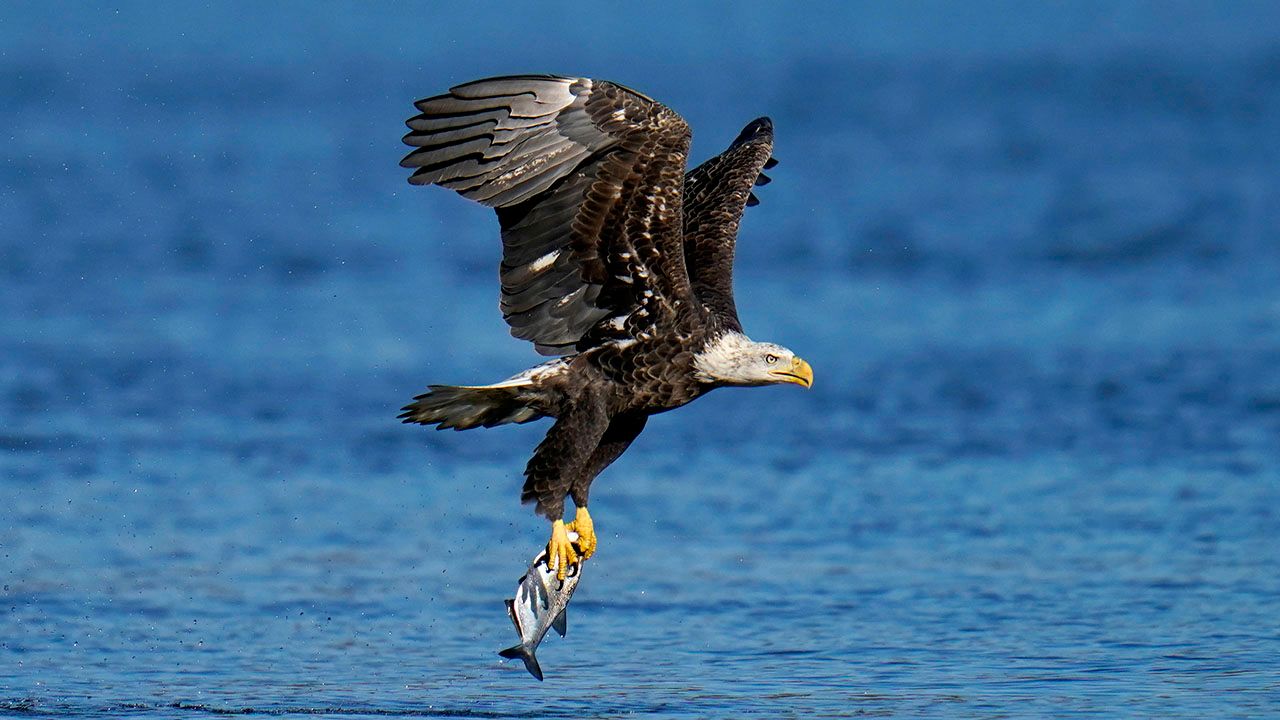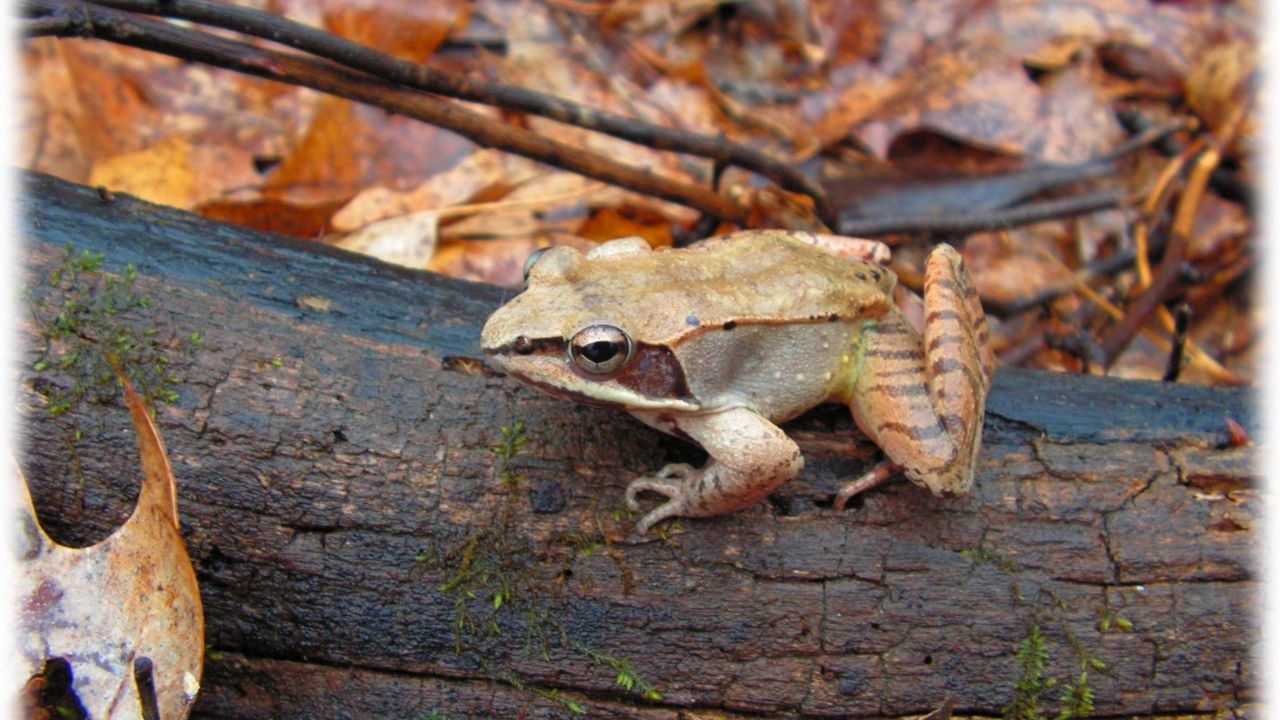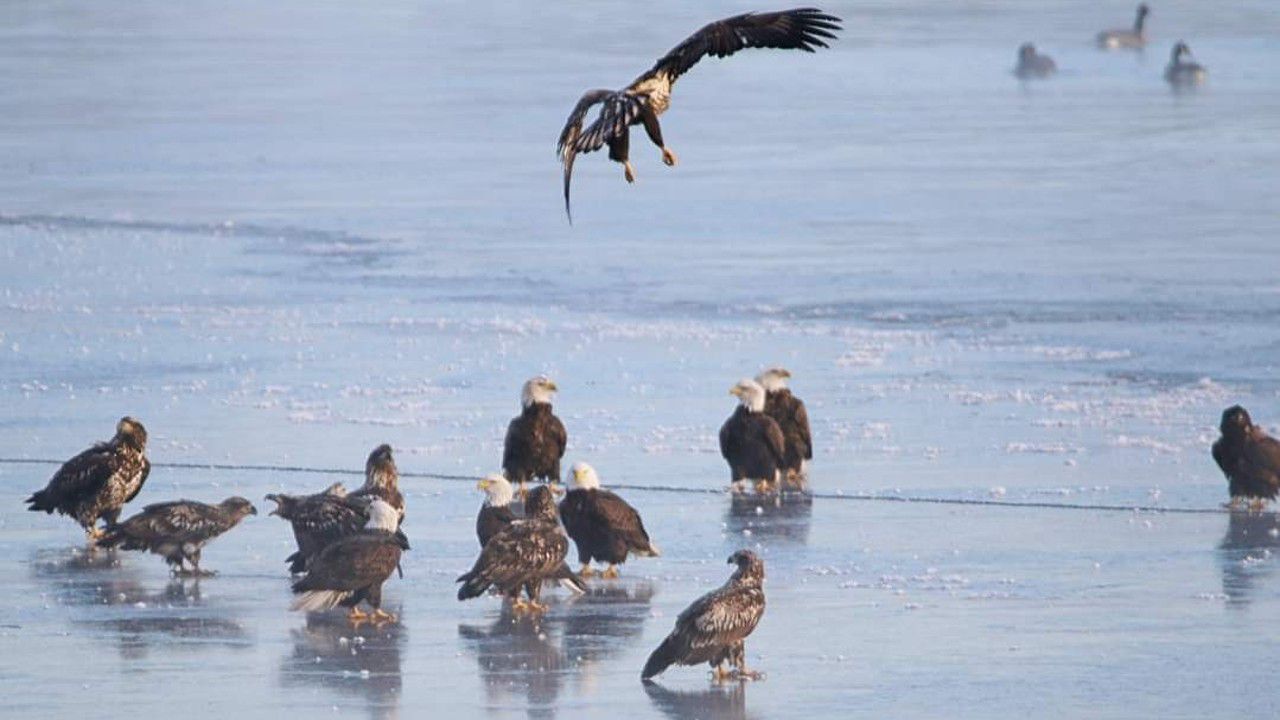If you have ever noticed a bunch of birds congregating on a tree on a warm winter day eating berries, keep a lookout for the ones that fly away from the tree. Make note if they seem a bit “off.”
Maybe not flying straight or even have some fly into a window. You might have intoxicated birds. Sounds like something from a tv show or movie, but actually it exists.
And it’s not just birds, says urban Wildlife Biologist Erin Shank with the Missouri Department of Conservation “Intoxicated wildlife is more common than we think. Bees and wasp can even be impacted momentarily by fermented berries. Racoons and opossums. Birds are more noticed b/c of their flying and crashing.”
Shank says during certain times of the year, including following the first frost, the berries that remain on trees or bushes, like holly, ferment. This also occurs in early spring, if any berries survive the winter.
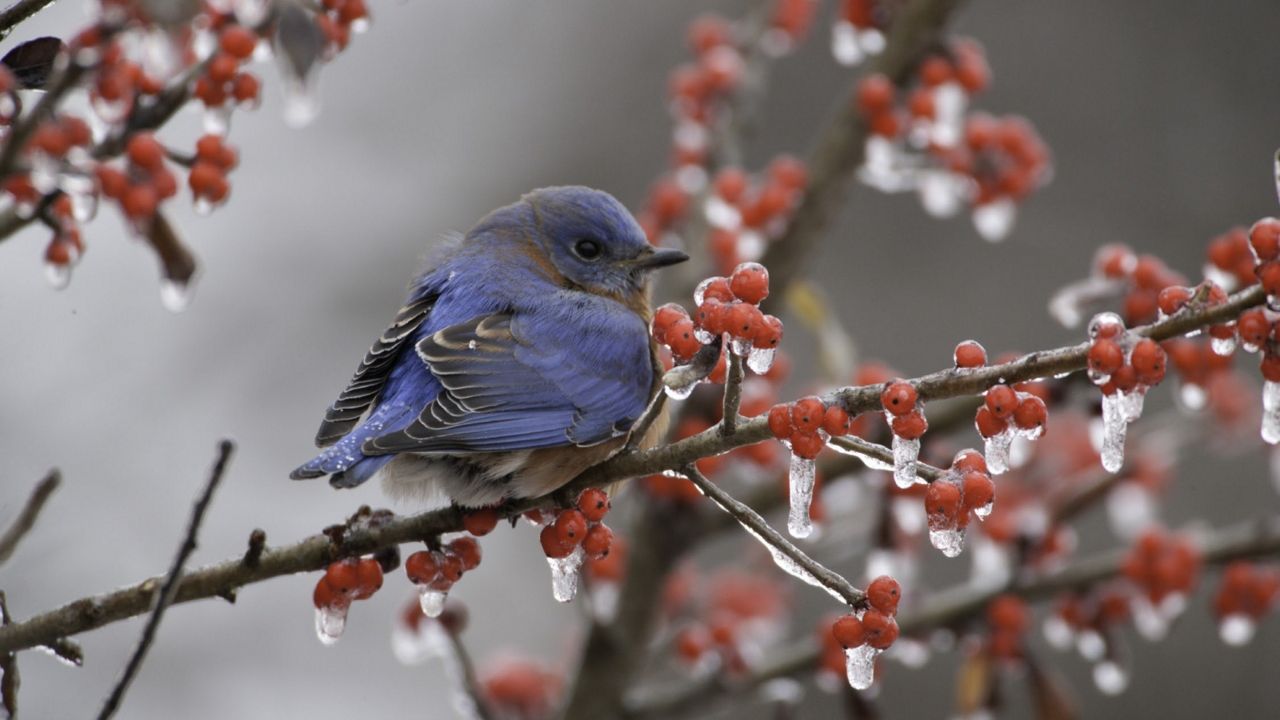
Left in the cold all winter, these berries completely ferment, meaning the sugar content in them becomes alcohol and towards the end of the winter, the alcohol becomes a higher concentration.
Think beer versus vodka. The berries, at the beginning in late fall or early winter, have low alcohol concentrations, like beer, but by late winter/early spring, they become more like vodka.
Waxwing birds don’t migrate south for the winter, they spend their time in cold-weather climates traveling around and scrounging for food. Noshing on these berries might make for some unbalanced flying, even some fatalities of the birds after crashing into windows.
Thanks to evolution, the waxwings have some protection. As a fruit-eating bird, they have larger livers, which help to breakdown the alcohol in the berries.
Although, the younger waxwings remain most at risk. Since still developing, these young ones remain most susceptible to inebriation from berries and the risk of injuring oneself or even dying.
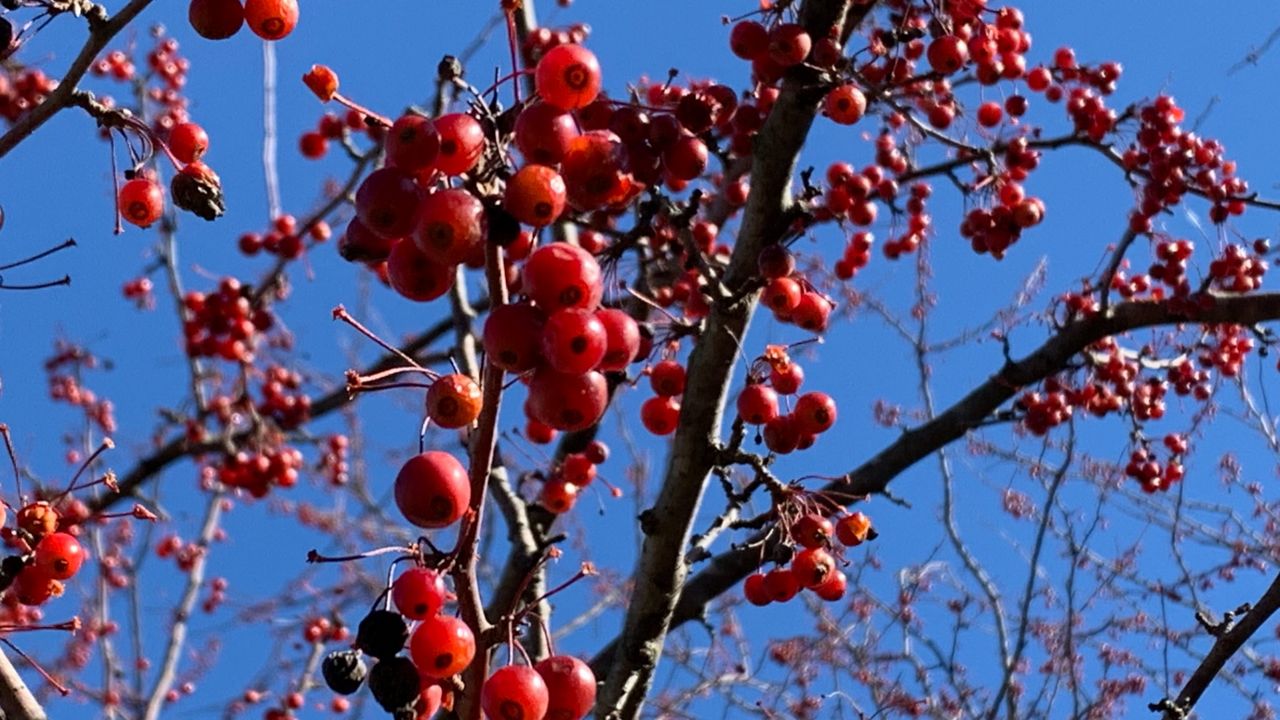
If you encounter a bird that you suspect has consumed fermented berries and is acting intoxicated, you can help.
“If it’s possible to leave it alone, that’s always best. Don’t stress it out,” Shank says.
Adding, “In the case of the birds, if you find a bird on the ground that is intoxicated, give them a spot to recover. Cover in a box with holes on it. Providing fresh water.”
Other creatures eat fermented fruit and can become intoxicated. Racoons, foxes, moose and even dogs have enjoyed some over-ripen fruit. In Africa, documentation shows wild animals eating fruit off the Marula tree only to become intoxicated.
Our team of meteorologists dives deep into the science of weather and breaks down timely weather data and information. To view more weather and climate stories, check out our weather blogs section.




